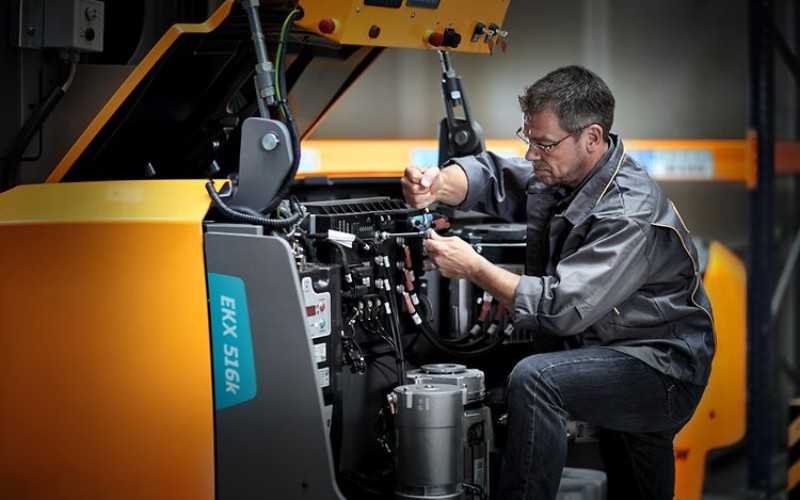Regular maintenance is essential for a forklift. This includes oil changes, spark plug replacements, and brake and coolant level checks. If these tasks are not performed regularly, they could result in severe problems with your machine. In addition, it is necessary to perform preventative maintenance, such as a full battery recharge, to ensure safety and reliability.
Oil Changes
Oil changes are one of the most common forklift repairs, but they can be performed by a mechanic or outsourced to a professional. These routine maintenance tasks reduce downtime and restore the equipment quickly. For example, most professionals in forklift mechanic jobs in Denver, CO, recommend changing the oil every 200 to 250 hours. This process can take as little as 10 minutes and will ensure that your equipment runs at peak performance. Regular oil changes, filter replacement, and grease application can prevent many expensive repairs down the line.
Spark Plug Changes
One of the most common forklift repairs is a spark plug change. Spark plugs are important components of a forklift’s engine, providing the spark necessary to ignite the gas within the combustion chamber. If they become damaged or misfire, they can cause major engine damage and poor performance. Spark plugs are one of the most common forklift repairs, and the technician who performs the repair should have some experience doing this type of repair. Following the manufacturer’s recommended maintenance schedule for forklifts is important to prevent major problems. Most manufacturers recommend regular in-depth inspections after a certain number of hours and mileage.
Brake Checks
One of the most important forklift maintenance tasks is brake checks. If you hear a grinding sound or notice that the brakes are jamming, there is a good chance that the brakes are not working properly. This can result in a warehouse disaster. Luckily, there are ways to prevent brake failure and save money on forklift maintenance.
Brake checks should be performed regularly. A malfunctioning brake system can cause serious damage to a facility and endanger personnel. How often you perform brake checks depends on environmental factors and the behavior of your operators. If the brakes aren’t functioning properly, debris can accumulate and cause ridges on the brake shoes. This should be repaired as soon as possible.
Coolant Level Checks
A simple way to prevent overheating and engine failure are to check your forklift’s coolant level. Low coolant levels can cause engine damage by deteriorating components that control coolant flow. This can lead to engine failure or premature wear. A cool forklift runs smoother and more efficiently, so check your coolant levels often.
Performing coolant-level checks is an important task for any forklift owner. Low coolant levels can cause the propane fuel regulator to freeze and cause the forklift not to operate correctly. It is also important to check for blockage in the radiator. If it is blocked, you should replace it. A properly maintained forklift is safe and can reduce costly repair costs.
Steering Issues
Steering problems can be caused by several factors, including faulty tires and worn-out gears. These problems can make the forklift difficult to steer and pose a risk to the safety of your workplace. If you suspect that steering issues are causing your forklift to perform poorly, call an experienced mechanic to inspect it. Whether your forklift has a hydraulic system or a steering problem, you need to get it checked by a forklift repair professional as soon as possible. If the steering fluid is too thick, it can affect the steering of the forklift and may cause other issues. You should also check your forklift’s gears and hydraulics to ensure they are in good working order. These problems can cause the forklift to run poorly and cut into your production schedule.
